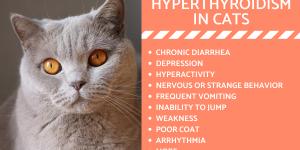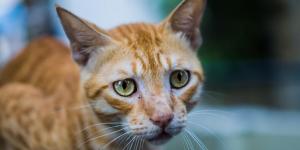Symptoms of Hypothyroidism in Cats

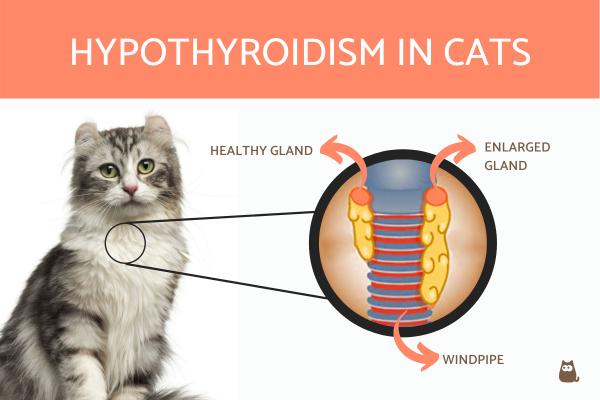

See files for Cats
Just like dogs, cats can also suffer from hypothyroidism, a disease caused by low thyroid function. It can be due to different causes, but the main problem is the decrease in the secretion of thyroid hormones. These hormones, when scarce, will cause an imbalance in different functions of our cat's organism.
In this AnimalWised article we will explain everything you need to know about hypothyroidism in cats, from the symptoms to the diagnosis and treatment, as well as the life expectancy of a cat with hypothyroidism.
Feline hypothyroidism
As we have previously mentioned, feline hypothyroidism can be due to different causes that will result in an insufficient amount of thyroid hormones.
The causes are varied but easy to understand. It can occur due to an alteration at any level of the Hypothalamic - Pituitary - Thyroid axis or commonly known as the regulatory axis. It can also be caused by a lack of thyroid development and in both cases it will be considered as primary hypothyroidism. Here we can also include gland atrophy and/or tumors.
In the case of secondary hypothyroidism there is a problem in the synthesis of thyroid hormones due to an issue in the functioning of the hormones that control the thyroid gland. Thyroid hormones are amino acids with iodine secreted by the gland that produces them, being the only compounds that have it. Therefore, they have essential functions in the body such as:
- Regulate homeostasis giving a good balance of the internal environment
- Regulate body growth and development
- They act in the synthesis and degradation of proteins and fats
- Increase oxygen consumption
- Regulate body temperature
- They form vitamins from carotenes
- Essential for the nervous system
You may also be interested in reading about hyperthyroidism in cats.
Symptoms of hypothyroidism in cats
The first clinical sign that our cat may be suffering from hypothyroidism is weight gain or obesity without dietary changes. However, other symptoms of feline hypothyroidism include:
- Neurological disorders: such as depression, confusion, stupor, intolerance to move, etc.
- Dermatological disorders: (although they are more common in dogs) lack of hair in certain areas, very itchy head and extremities, bad appearance of the coat, hyperpigmentation in areas, increased edema (such as inflammation), seborrhea, unkept appearance, etc.
- Cardiac disorders:such as a decrease in the heartbeat or alterations at the heart level.
- Neuromuscular signs: such as weakness, lack of desire to walk or play, atrophy of the limbs at the muscular level.
- Reproductive disorders: such as longer jealousy, infertility, testicular atrophy almost until disappearing from the scrotal bag, decreased sexual desire, etc.
- Intolerance to cold temperatures
If you observe any of these symptoms in your cat, or any other abnormalities in their behaviour or appearance, you should take them to the veterinarian to be properly diagnosed and treated.
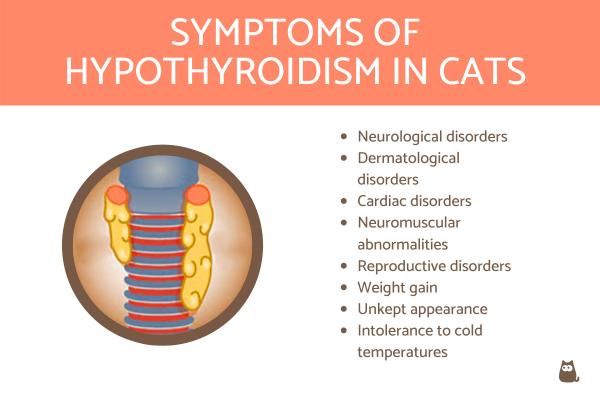
Diagnosis of hypothyroidism in cats
Once you take your cat to the veterinarian, they will ask you about the symptoms you have noticed and then carry out a general check-up with a blood test to evaluate the thyroid hormones and the corresponding biochemistry to see if it is accompanied by any other health issue.
After they finish these examinations, they will be able to confirm whether or not your cat is suffering from hypothyroidism and/or any other health issue. Then, they will be able to select the best treatment for your cat.
Treatments for hypothyroidism in cats
Early diagnosis and treatment of hypothyroidism is very important as, if hypothyroidism is left untreated, this illness can lead to your cat's death. Therefore, as soon as you bring your cat to the veterinarian and they have chosen the best treatment for your cat, it is time to begin with their treatment.
To know which treatment is best for your cat, your veterinarian will need to know exactly what type of hypothyroidism your cat has. Sometimes, synthetic hormone supplementation is the chosen path to regulate the cat's blood levels. Surgery is often avoided, even in severe cases, as many cats are in such a bad state that they cannot survive the surgery. Not only that, but it is also expensive and it will still require the cat be on medication for the rest of their lives.
Lastly, some veterinarians recommend radioactive iodine therapyThis treatment involves a single shot followed by a few days of monitoring by your veterinarian. In most cases, only one treatment is needed to cure feline hyperthyroidism. Cats also rarely experience any side effects from radioiodine therapy.
When it comes to home remedies, it's a great idea to accompany your cat's treatment prescribed by your veterinarian with a healthy lifestyle. Many people decide to switch their cat's diet or even add supplements if their cat is deficient in any nutrient or mineral.
However, here at AnimalWised we must remind you that these “natural treatments” are not considered effective by professional veterinarians, and if this illness is left untreated the result can be fatal. This is why we recommend you take your cat to the veterinarian as soon as possible to be properly diagnosed and treated by a professional.
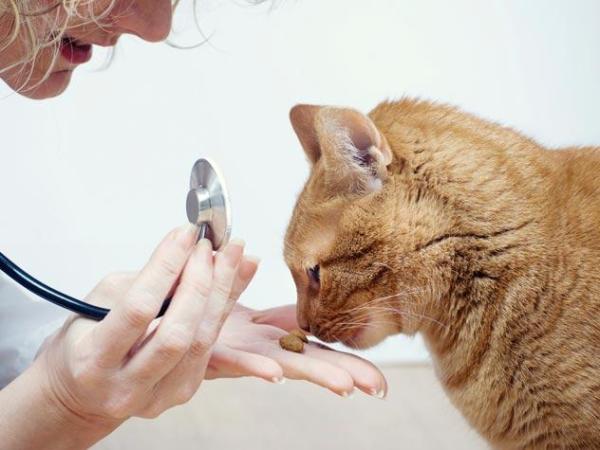
Life expectancy of hypothyroidism in cats
Most cats that are diagnosed with hypothyroidism are put on synthetic hormone supplementationtreatment. These cats live an average of 3-5 years of a good-quality life with this illness before dying of kidney failure or heart failure.
Keep in mind that cats left untreated will not only die earlier on, but they will also live in pain and a low quality of life. This is why the medication is so important. Although cats diagnosed with this disease will live an average of 3-5 more years, their treatment will help them enjoy those years with you.

This article is purely informative. AnimalWised does not have the authority to prescribe any veterinary treatment or create a diagnosis. We invite you to take your pet to the veterinarian if they are suffering from any condition or pain.
If you want to read similar articles to Symptoms of Hypothyroidism in Cats, we recommend you visit our Other health problems category.
- J. Catharine Scott-Moncrieff. (2007).Clinical Signs and Concurrent Diseases of Hypothyroidism in Dogs and Cats. Veterinary Clinics of North America: Small Animal Practice. Volume 37, Issue 4. https://doi.org/10.1016/j.cvsm.2007.03.003.
- Jones BR, Gruffydd-Jones TJ, Sparkes AH, Lucke VM. (1992). Preliminary studies on congenital hypothyroidism in a family of Abyssinian cats. The Veterinary Record. DOI: 10.1136/vr.131.7.145.

